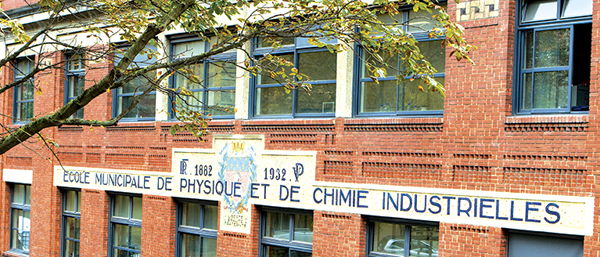ESPCI is a leading French “Grande Ecole” founded in 1882, educating undergraduate and graduate students through a programme merging basic science and engineering, as well as a world-renowned research institution. ESPCI Paris has set up a tradition of excellence in research, with distinguished faculty that have contributed to its history, such as Pierre and Marie Curie, Paul Langevin, Frédéric Joliot-Curie, Pierre-Gilles de Gennes and Georges Charpak. The five Nobel laureates in this list are emblematic of the exceptional ethos embodied in the permanent culture of excellence at ESPCI Paris.

ESPCI Paris hosts 9 research units, all associated to CNRS and/or INSERM and/or other Parisian Universities in the form of joined research units, covering the fields of physics, chemistry and biology. Favouring interdisciplinary, and operating at the frontiers between fundamental research and innovation, are two major objectives of ESPCI Paris. This is achieved through a flexible organisation (without departments) that ensures a cross fertilization between scientific disciplines, as well as a direct connection between basic science and applications. One of ESPCI’s distinctive features is that it carries out fundamental research into areas of major interest to industry, while developing various approaches to practical industrial problems through the deep, fundamental understanding of the mechanisms at play. Performing fundamental research while keeping an eye on applications enables ESPCI research scientists to make an impact at multiple levels.
Scientists at ESPCI Paris publish more than one scientific paper a day, and at the same time apply for one patent a week and create several technology-driven start-ups every year - over the last 10 years.
ESPCI is also a part of Paris Science et Lettres (PSL) Research University – an ambitious collaboration project of 26 research institutions in a broad range of disciplines from engineering, chemistry and oncology to economics, management, the humanities and the performing arts.
